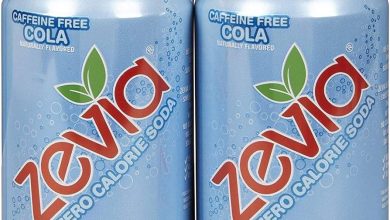Squid (Small White)
Squid is a versatile and nutritious seafood that offers a lean protein source with low fat content. It is often featured in various dishes, from pasta to seafood stews, due to its delicate flavor and firm texture. The small, white variety of squid is especially popular in culinary traditions worldwide for its mild taste and versatility in both cooked and raw preparations. Whether grilled, fried, or incorporated into soups and salads, squid brings a delightful sea-inspired flavor to any dish.
Nutritional Information per 100g
| Nutrient | Amount |
|---|---|
| Energy | 84.37 kcal |
| Protein | 17.41 g |
| Total Fat | 1.15 g |
| Saturated Fats | 0.30 g |
| Carbohydrates | 0.00 g |
| Fiber | 0.00 g |
| Sugars | 0.00 g |
| Calcium | 36.46 mg |
| Iron | 0.39 mg |
| Magnesium | 38.53 mg |
| Phosphorus | 151.00 mg |
| Potassium | 134.00 mg |
| Sodium | 154.00 mg |
| Zinc | 1.64 mg |
| Copper | 1.10 mcg |
| Manganese | 0.02 mg |
| Selenium | 70.02 mcg |
| Vitamin C | 0.00 mg |
| Thiamin (Vitamin B1) | 0.01 mg |
| Riboflavin (Vitamin B2) | 0.03 mg |
| Niacin (Vitamin B3) | 0.71 mg |
| Vitamin B6 | 118.00 mcg |
| Folate (Vitamin B9) | 1833.00 mcg |
| Vitamin B12 | 0.00 mcg |
| Vitamin A | 0.00 mcg |
| Vitamin E | 0.66 mg |
| Vitamin D2 | 0.00 mcg |
Allergen Information
Squid is a common allergen, especially for individuals with shellfish allergies. It is essential to avoid consuming squid if you have a known shellfish or seafood allergy. If preparing dishes for others, ensure that any squid-based recipes are clearly labeled to avoid allergic reactions.
Dietary Preferences
- Low Carb: Squid is an excellent choice for low-carb and keto diets, offering a substantial amount of protein with no carbohydrates.
- High Protein: With over 17 grams of protein per 100 grams, squid is a great option for those seeking to increase protein intake, such as athletes or individuals following a high-protein diet.
- Low in Saturated Fat: The minimal saturated fat content makes squid a heart-healthy option compared to other animal protein sources.
- Gluten-Free: Naturally gluten-free, squid is an ideal choice for those with gluten sensitivities or celiac disease.
Tips for Cooking and Enjoying Squid
Squid can be enjoyed in numerous culinary ways, from simple grilled squid to intricate seafood pasta dishes. Here are some preparation tips to enhance your dishes:
- Grilling: Clean and score the squid before grilling for optimal texture and flavor. Marinate it in olive oil, lemon juice, garlic, and herbs before grilling to enhance its delicate flavor.
- Frying: For crispy squid rings, dip the squid in seasoned flour or breadcrumbs and fry until golden. Serve with a tangy dipping sauce, such as aioli or marinara.
- Stuffing: Squid can be stuffed with a variety of ingredients, such as rice, breadcrumbs, or seafood. It makes for an elegant and flavorful dish.
- Soup or Stew: Add squid to soups or stews, where its flavor complements other ingredients like tomatoes, garlic, and herbs, infusing the broth with a delightful depth.
Conclusion
Small white squid is a nutritious and versatile seafood choice, packed with high-quality protein and a rich array of essential minerals, such as magnesium, phosphorus, and selenium. It is low in fat and carbohydrates, making it suitable for various dietary needs, including low-carb and heart-healthy eating plans. While squid is a delicious addition to your meals, it is essential to be mindful of potential allergens for individuals with seafood sensitivities. With its mild flavor and tender texture, squid is a delightful ingredient that can elevate a variety of dishes, from light salads to hearty stews.










